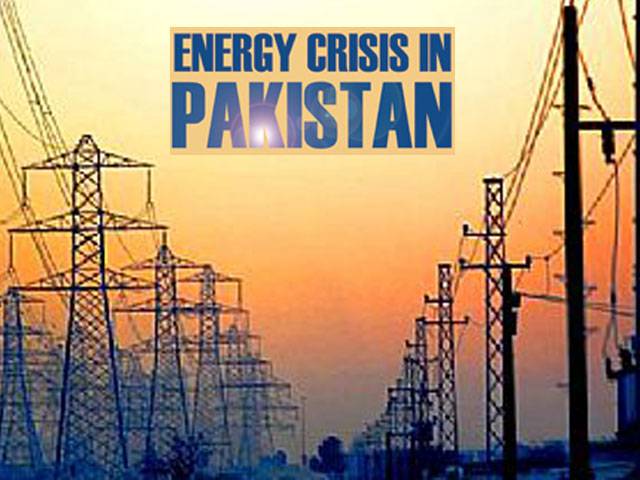ISLAMABAD/LAHORE - Amid severe wave of cold, the country is experiencing worst ever energy crisis ostensibly due to the mismanagement on part of the government, while every segment of society is forced to bear the brunt of energy shortage, particularly gas shortage.
Ongoing energy crisis has devastated the routine and business life of the country and left the people in extreme distress. Thousands have gone jobless, as business and commercial activities have been minimized due to power outages coupled with gas shortages that resulted in the form of closure of industry and CNG filling stations. Gas and power crisis has worsened and supply situation is almost same even in the big cities like Lahore, Karachi, Quetta, Rawalpindi, Peshawar, Multan, Islamabad etc. if compared it with the prevailing situation of rural or remote areas of the country.
Official sources told this scribe that currently the total power generation stands at 9500MW against the demand of 11200MW while total gas production is around 3.6bcfd against the demand of 6bcfd. They also said that on going energy situation across the country is very troublesome amid freezing cold weather. Gas supply to industrial, and commercial consumers, power and CNG sectors to some extent is suspended due to widening gap between high demand and low supply, they added.
Besides suspension of natural gas supply to CNG filling stations in Punjab a few weeks ago and following the governmental announcement that the domestic supply would continue round-the-clock, people from all walks of life are bearing heavy brunt of serious gas shortage. Reportedly, both gas utilities - Sui Northern Gas Pipeline Limited & Sui Southern Gas Company Limited - have set aside the gas load management plan. The SNGPL and SSGC are facing around 40 per cent shortage in their supply and demand network.
There is low or no gas supply in houses for cooking or heating purposes, and domestic consumers have to rely on alternative expensive fuels like Liquefied Petroleum Gas (LPG), kerosene oil, coal, wood etc to keep their stoves working for cooking the food and heating as well. In addition to this, commuters are also facing hike in fares of public transport due to the closure of CNG stations, as transporters are charging high fares, which is also resulting in price hike of basic commodities and exchange of hot words and scuffles between passengers and transporters is witnessed when they demand inflated fares.
Ironically, reduced gas and power supply have badly affected the routine of school children and other employees. Study hours of students have been badly affected, as they cannot study at night. Similarly, large and small-scale businesses in the country are under severe stress ostensibly due to above-mentioned reasons. Different political parties have so far voiced against the soaring inflation and the ongoing energy crisis. They have threatened to launch a series of massive protest demonstrations across the country. The political forces were of the stand that the non-availability of natural gas and power in the chilly weather had made the lives of public miserable. The unscheduled and prolonged electricity loadshedding coupled with gas outages have irked the masses and turned the life miserable across Pakistan.
Meanwhile, in Punjab, the residents of main cities like Lahore, Sheikhupura, Gujranwala, Faiselabad, Multan and others are facing severe shortage of gas. There is almost no gas at homes in particular areas of the city like Johar Town (BOR Society), Samnabad, Walled City, Gulshan-e-Ravi, Iqbal Town, Thoker Niaz Beg, Canal View and many adjoining areas.
A local TV reported that in Karachi, most of the areas including Lyari, Kharadar, Sadar, Garden and Soldier Bazar had gas in short supply or there was no gas at all. Similarly, according to TV reports, life in Quetta was also turning into a nightmare for those who mainly belonged to the lower social strata of society. A low gas pressure was also reported throughout Balochistan. The situation of gas in twin cities was also getting worse due to low pressure of gas in most of the localities.
Several residents said they used Liquefied Petroleum Gas (LPG) as an alternative but it was not affordable. The citizens urged the authorities concerned to take steps for regularising the gas supply during the winter season.
Thursday, April 18, 2024
Masses bearing the brunt of energy crisis
‘Priority’ domestic consumers without gas in extreme cold | Transporters charging high fares amid CNG stations closure

NAB exonerates Nawaz in Toshakhana reference
April 18, 2024
PPP, PML-N parliamentary delegation in Beijing to boost ties
April 18, 2024
Eight more Sindh ministers sworn in
April 18, 2024
AGP’s audit report discloses irregularities in BRT project
April 18, 2024
Rail Revival
April 17, 2024
Addressing Climate Change
April 17, 2024
Saudi Investment
April 17, 2024
Political Reconciliation
April 16, 2024
Pricing Pressures
April 16, 2024
Justice denied
April 18, 2024
AI dilemmas unveiled
April 18, 2024
Tax tangle
April 18, 2024
Workforce inequality
April 17, 2024
New partnerships
April 17, 2024
ePaper - Nawaiwaqt
Advertisement
Nawaiwaqt Group | Copyright © 2024





